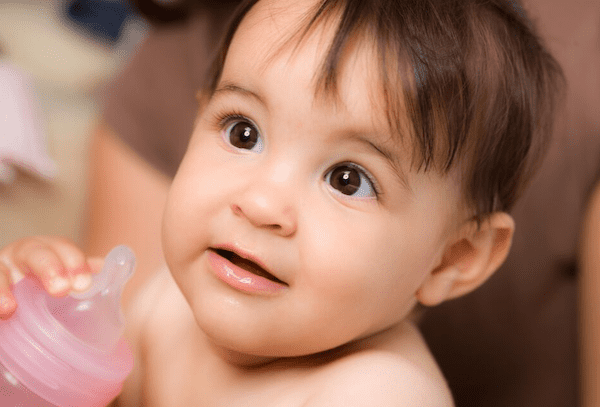by Vikki Crouse

More than 230,000 babies and young children attend licensed child care centers in North Carolina. New rules adopted by the NC Commission for Public Health will ensure that all of those children are drinking water that is free from hazardous lead contamination.
This is a big win for young children in our state. One of the simplest things we can do to promote children’s healthy brain development is to make sure their drinking water is free from lead. Kudos to the NC Division of Public Health for their leadership on this important issue.
VIDEO: Why is this so important? Getting Lead out of Child Care Water
“Our reason for being is the healthy development of young children,” said Patricia Beier, executive director of WAGES, a community organization and HeadStart center in Goldsboro, N.C. “We want to be sure that everything we do promotes that mission, especially when we’re doing something as simple as filling up a child’s drinking cup or making up a bottle of formula.”
Many child care providers have been part of the effort to study lead in child care water and design effective solutions, including the NC Licensed Child Care Association and the North Carolina Division of Child Development and Early Education. Researchers at RTI International worked with dozens of child care providers to understand lead levels in child care water, design efficient citizen sampling protocols, and cost-effective methods to remove lead. Graduate students and research fellows at Duke University’s Environmental Law & Policy Clinic also contributed invaluable research and analysis to developing a sound rule.
The rule went into effect on October 1, and licensed child care centers will have a year to get their water tested. Costs for the first year of testing will be covered, thanks to a federal grant secured by the NC Division of Public Health’s Childhood Lead Poisoning Prevention Program . Additional federal grant funds may become available in the future to pay for the cost of replacing faucets or installing certified filters.
In order to take advantage of this funding, child care operators will need to wait until the grant has been awarded, and the Division of Public Health notifies them that they’re ready to begin collecting samples (anticipated soon). NC Child is creating a series of instructional videos in English and Spanish to guide child care providers through the process.
Vikki Crouse is NC Child’s Health Program Associate.
We are extremely grateful for the support of The Duke Endowment, as well as many individuals across the state who share NC Child’s goal to promote policy initiatives that eliminate childhood lead exposure in North Carolina. You can support NC Child’s work to ensure health and wellness for all NC’s children – click here to make a donation today.
